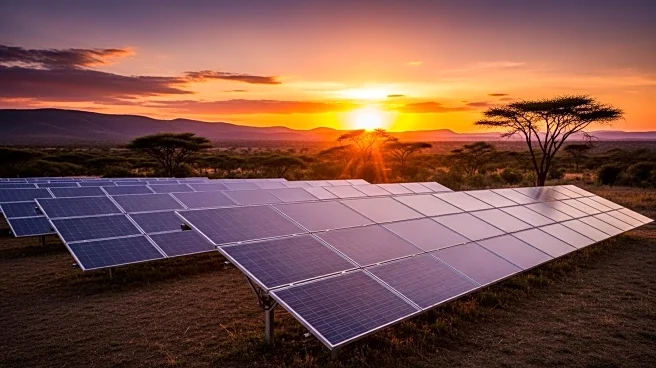What's Happening?
African countries are increasingly adopting solar energy solutions, driven by the availability of affordable solar panels and lithium-ion batteries. This shift is crucial for addressing the continent's electricity access challenges, where over 600 million people lack electricity. Recent data shows a significant increase in solar panel imports across Africa, with countries like Sierra Leone, Nigeria, and Algeria leading the charge. The affordability and availability of solar technology are enabling rapid installations, providing a sustainable solution to power shortages and reducing reliance on diesel fuel.
Why It's Important?
The widespread adoption of solar energy in Africa represents a transformative shift towards sustainable power solutions. This development is vital for improving electricity access, enhancing energy security, and reducing carbon emissions. The affordability of solar panels and batteries is making renewable energy more accessible to households and businesses, fostering economic growth and development. As solar energy becomes more prevalent, it could significantly reduce fuel imports, offering economic benefits and promoting environmental sustainability.
Beyond the Headlines
The move towards solar energy in Africa has broader implications for global energy markets. As African countries increase their solar capacity, they contribute to the global transition towards renewable energy. This shift also highlights the role of international trade and technology transfer in addressing energy access challenges. The success of solar adoption in Africa could serve as a model for other regions facing similar issues, emphasizing the importance of affordable and accessible renewable energy solutions.










